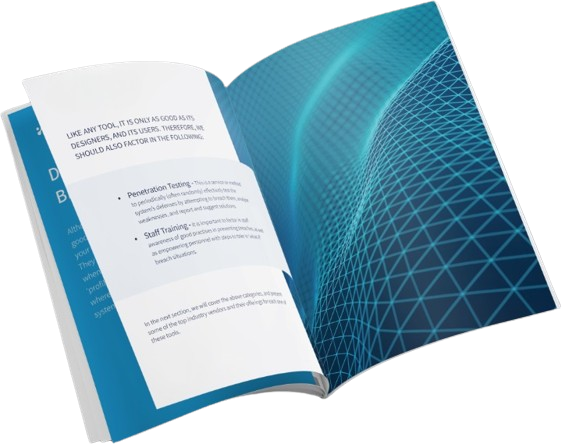Are you considering leveraging collateral to secure funding for your business but unsure of the process and benefits?
Understanding the intricacies of secured business loans and how collateral plays a pivotal role in obtaining funding is essential for any business owner seeking financial stability.
By exploring the various types of collateral accepted and the potential to maximize loan amounts, you can gain insight into how to effectively leverage your assets for the growth and success of your business.
Key Takeaways
- Collateral is an important aspect of secured loans, as it provides security for lenders and can lead to better loan terms and interest rates.
- Different types of assets can be used as collateral, such as real estate, equipment, and inventory, depending on the industry and lender requirements.
- Valuation of collateral is crucial for loan approval and terms, as lenders assess the market value, condition, and quality of the assets being pledged.
- Understanding the collateral requirements and valuation processes helps businesses leverage their assets effectively and navigate the secured loan application process confidently.
Understanding Collateral and Secured Loans
When seeking financing options, understanding the concept of collateral and secured loans is crucial for making informed decisions about your business’s funding.
Collateral refers to the assets that a borrower pledges as security for a loan. Lenders require collateral to mitigate the risk of lending and to provide assurance that they can recoup their funds if the borrower defaults on the loan. Collateral requirements vary among lenders and loan types, but common forms of collateral include real estate, equipment, inventory, and accounts receivable. Understanding collateral requirements is essential as it directly impacts the type and amount of funding a business can secure.
Collateral valuation is the process of determining the worth of the assets being pledged as collateral. Lenders assess the value of the collateral to determine the amount of funds they’re willing to lend. The valuation process may involve appraisals, financial statements, and other relevant documentation. It’s crucial for borrowers to understand how lenders evaluate the collateral’s value, as it directly influences the loan-to-value ratio and the overall terms of the secured loan.
Additionally, borrowers should be aware of the potential consequences of defaulting on a secured loan, as it could lead to the seizure of the pledged collateral by the lender.
Benefits of Secured Business Loans
What are the key advantages of securing a business loan with collateral, and how do they benefit your business’s financial stability and growth potential?
Securing a business loan with collateral offers several benefits that can significantly impact your business’s financial health and growth prospects.
Firstly, using collateral can enhance your eligibility for secured loans. Lenders are often more willing to extend credit to businesses that can offer collateral, as it reduces the risk for the lender. This increased eligibility can provide your business with access to larger loan amounts, better interest rates, and more favorable repayment terms, ultimately contributing to improved financial stability.
Furthermore, leveraging collateral for a secured business loan can result in more favorable terms and lower interest rates. This is because the presence of collateral provides a level of security for the lender, thereby reducing the perceived risk. As a result, lenders are more inclined to offer lower interest rates, which can lead to significant cost savings over the life of the loan. Additionally, secured loans often offer longer repayment periods, providing your business with greater flexibility in managing cash flow and resources.
Moreover, securing a business loan with collateral can contribute to the growth potential of your business. By accessing larger loan amounts at better terms, your business can invest in expansion, equipment, or other critical assets, fueling growth and enhancing competitiveness in the market.
Types of Collateral Accepted
To further explore the practical application of leveraging collateral for secured business loans, it’s essential to understand the various types of assets that lenders commonly accept as collateral. When considering collateral requirements, lenders typically accept the following types of assets:
- Real Estate: Lenders often consider real estate properties, such as commercial buildings, residential properties, and vacant land, as valuable collateral for secured business loans. These assets are typically appraised to determine their current market value, which plays a crucial role in collateral valuation for loan approval.
- Equipment and Machinery: Business equipment, machinery, and vehicles can also serve as collateral for secured loans. Lenders may assess the condition, age, and market value of these assets to determine their suitability as collateral.
- Accounts Receivable and Inventory: In some cases, lenders may accept accounts receivable and inventory as collateral, especially for businesses in certain industries. Collateral valuation for these assets may involve evaluating the quality of the accounts receivable and the marketability of the inventory.
Understanding the types of collateral accepted by lenders is important for businesses seeking secured loans. It’s crucial to carefully assess the value and condition of the assets being offered as collateral, as these factors play a significant role in determining loan approval and the terms of the secured financing.
Leveraging Collateral for Funding
Leveraging collateral for funding requires a thorough understanding of the types of assets commonly accepted by lenders and their valuation process. When considering collateral requirements, lenders typically accept various types of assets, each with its own valuation process. Understanding the value that lenders attribute to different types of collateral is crucial in leveraging these assets for funding.
To better illustrate the types of assets commonly accepted by lenders and their valuation process, refer to the following table:
| Type of Asset | Common Valuation Process |
| Real Estate | Property appraisal |
| Equipment | Equipment appraisal |
| Inventory | Inventory valuation |
This table provides insight into the different types of collateral accepted by lenders and the corresponding valuation processes. Real estate is typically appraised by professional property appraisers, while equipment undergoes its own appraisal process. Inventory valuation involves assessing the worth of the existing stock.
Understanding these collateral valuation processes is vital for businesses seeking to leverage their assets for funding. By comprehending the different types of collateral required and their valuation methods, businesses can better position themselves to secure the funding they need.
Secured Loan Application Process
When applying for a secured business loan, understanding the required collateral types, approval process, and disbursement terms is crucial.
It’s essential to be well-informed about the specific collateral that lenders may accept, the criteria for loan approval, and the timeline for fund disbursement.
Knowing these key points will help you navigate the secured loan application process with confidence and ensure a smooth funding experience.
Required Collateral Types
One crucial aspect of the secured loan application process is understanding the various types of collateral that can be utilized to secure funding for your business.
When considering collateral requirements, it’s important to be familiar with the following types of assets that can be used for securing a business loan:
- Real Estate: Property such as land, buildings, or homes can be used as collateral for securing a business loan.
- Equipment: Machinery, vehicles, and other business equipment can serve as collateral to obtain funding for your business.
- Accounts Receivable: Unpaid invoices or accounts receivable can be used as collateral for securing a loan, providing a source of funding based on outstanding payments.
Understanding the collateral evaluation process and the various types of assets that can be accepted as collateral is essential when applying for a secured business loan.
Approval and Disbursement
Understanding the collateral evaluation process and the various types of assets that can be accepted as collateral is crucial. Now, we’ll explore the next phase of the secured loan application process: Approval and Disbursement.
Once your collateral has been evaluated and deemed acceptable for securing a loan, the lender will review your application and financial information. This step involves a thorough assessment of your creditworthiness, business performance, and ability to repay the loan.
If your application meets the lender’s criteria, the approval process will proceed, and disbursement of funds will follow. The disbursement process involves the transfer of the approved loan amount to your designated account.
It’s essential to provide accurate and complete documentation to expedite the approval and disbursement process, ensuring a smooth and efficient experience in securing collateral for loans.
Maximizing Loan Amount With Collateral
To maximize the loan amount with collateral, it’s essential to carefully assess the value and type of assets you can offer as security for the loan. Leveraging your assets effectively can significantly increase the amount of funding you can secure for your business. Here are three key considerations to help you maximize your loan amount with collateral:
- Asset Evaluation: Conduct a thorough evaluation of your assets to determine their market value. Tangible assets such as real estate, equipment, and inventory are commonly used as collateral for secured business loans. The higher the appraised value of the assets, the greater the potential loan amount you can secure.
- Diversification of Collateral: Consider offering a diverse range of assets as collateral. By leveraging multiple types of assets, you can demonstrate a stronger financial position to lenders. This can lead to a higher loan amount as it spreads the risk for the lender and provides them with more security.
- Documentation and Verification: Ensure that you have all the necessary documentation and verification for the assets you intend to use as collateral. Clear and well-documented proof of ownership and value can expedite the loan approval process and increase the likelihood of securing a larger loan amount.
Collateral Evaluation and Valuation
When considering collateral for a secured business loan, it’s essential to understand the types of collateral and their respective values.
Lenders have a specific appraisal process to evaluate the collateral’s worth, which directly impacts the terms of the loan.
Collateral Types and Value
Various types of collateral are used in securing business loans, and their valuation is a critical aspect of the lending process. When evaluating collateral for a secured business loan, lenders consider a few key factors:
- Type of Collateral: Lenders assess the type of collateral being offered, such as real estate, equipment, inventory, or accounts receivable, to determine its suitability and potential value.
- Market Value: The market value of the collateral is a crucial consideration. Lenders often engage independent appraisers to determine an accurate market value.
- LTV Ratio: Loan-to-value (LTV) ratio is calculated to assess the proportion of the loan amount in relation to the value of the collateral. Lenders typically have maximum LTV ratios based on the type of collateral.
Lender Appraisal Process
The successful evaluation and valuation of collateral is a pivotal aspect of the lender appraisal process for secured business loans, directly impacting the loan-to-value ratio and the overall risk assessment. Lenders have a thorough evaluation process to ensure the collateral’s value is maximized, minimizing potential losses in the event of default. Here’s an overview of the lender appraisal process:
| Lender Appraisal Process | Description | Purpose |
| Inspection of Collateral | Physical assessment of the asset’s condition | Ensure the collateral’s quality and usability |
| Market Analysis | Comparison with similar assets in the market | Determine the fair market value of the collateral |
| Documentation Review | Verification of ownership and legal status | Ensure the collateral can be used to secure the loan |
Impact on Loan Terms
Assessing the value of collateral directly influences the terms of your business loan, impacting the amount, interest rate, and repayment terms you may be offered. This evaluation plays a crucial role in determining your loan eligibility and the specific terms of your financing.
The following factors are impacted by the assessment of collateral:
- Loan Amount: The value of your collateral can directly affect the maximum loan amount you’re eligible to receive.
- Interest Rate: The quality and value of your collateral can influence the interest rate offered on your secured business loan.
- Repayment Terms: The assessment of your collateral can also affect the repayment schedule and terms of your loan, including the length of the repayment period.
The evaluation of collateral is a key determinant in shaping the overall loan terms and conditions offered to your business.
Secured Loan Repayment Considerations
When considering secured loan repayment, it’s essential to thoroughly evaluate your collateral’s value and its potential impact on your business’s financial security. The collateral evaluation process is crucial in determining the maximum loan value that can be secured. Start by assessing the current market value of the collateral you intend to use, such as real estate, equipment, or inventory. This evaluation should be based on realistic and conservative estimates to ensure that the collateral’s value aligns with the loan amount you’re seeking.
Maximizing loan value through collateral assessment involves understanding the potential risks and fluctuations in the value of the assets being pledged. Consider the future outlook of the collateral’s worth and how external factors could affect its market value. It’s also important to review the terms and conditions of the loan agreement to comprehend the impact of fluctuations in collateral value on your repayment obligations.
Additionally, when using business assets as collateral, it’s crucial to consider the operational implications. Pledging critical assets can limit your flexibility in utilizing them for business growth or unforeseen circumstances. Therefore, it’s imperative to weigh the benefits of securing a larger loan amount against the potential limitations that may arise from tying up valuable assets.
Frequently Asked Questions
What Are Some Alternative Types of Collateral That Can Be Used for Securing a Business Loan, Aside From Traditional Assets Like Real Estate or Equipment?
When considering alternative collateral for securing a business loan, non-traditional assets like intellectual property or accounts receivable can be viable options. Collateral valuation is crucial, as these assets may require specialized appraisal techniques.
It’s important to consider the legal implications of using non-traditional collateral, as the process may involve additional documentation and verification.
Evaluating the potential risks and benefits is essential when exploring unconventional forms of collateral for business financing.
Are There Any Specific Industries or Types of Businesses That May Have Difficulty Securing a Loan Using Collateral?
Specific industries or small businesses may face collateral challenges when securing loans. Alternative collateral options can be explored, but the valuation process, tax implications, and legal considerations must be carefully assessed.
Some businesses with intangible assets or multiple assets may encounter difficulties in proving the value to lenders. It’s important to work with professionals who understand the complexities of leveraging alternative collateral for securing business loans.
Can a Business Owner Use Multiple Types of Collateral to Secure a Larger Loan Amount, or Is It Typically Limited to One Asset?
When considering leveraging assets for a larger loan, it’s essential to diversify collateral options. Typically, lenders allow multiple types of collateral to secure a larger loan amount, offering flexibility to business owners.
This approach increases the likelihood of approval and provides additional security for the lender. By diversifying the assets used as collateral, you can potentially access a larger loan amount while mitigating risk for both you and the lender.
How Does the Valuation Process for Non-Traditional Collateral Differ From Traditional Assets, and What Factors Are Taken Into Consideration?
When valuing non-traditional collateral for securing a loan, the process differs from traditional assets. Factors like market demand, condition, and resale potential are considered. For alternative types, specific industries may influence valuation.
Using multiple collateral can impact tax implications and legal considerations. Expert evaluation ensures the best valuation for non-traditional collateral, vital for securing a loan.
Are There Any Specific Tax Implications or Legal Considerations That Business Owners Should Be Aware of When Using Collateral to Secure a Loan?
When using collateral to secure a loan, it’s crucial to understand the potential tax implications and legal considerations.
Tax implications may arise from deducting interest on the loan, while legal considerations involve the impact of default on the collateral.
Consulting a tax professional and legal advisor can provide valuable insights into managing these aspects effectively.
Understanding these factors is essential to ensure compliance and make informed decisions regarding collateral-based loans.
Final Thoughts
Securing a business loan with collateral can provide the financial support you need to grow your business. By leveraging your assets, you can maximize your loan amount and increase your chances of approval.
With the expert guidance and extensive network of lenders available, you can confidently navigate the secured loan application process. So, don’t wait any longer – seize the opportunity to unlock the potential of your business with secured business loans. The sky’s the limit!



